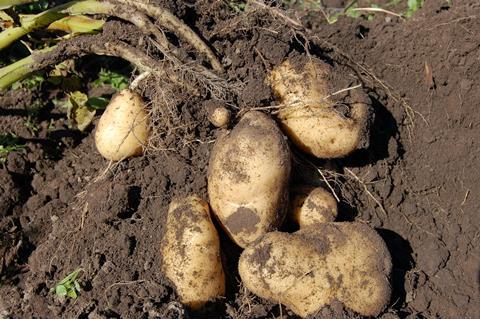A total of eight sites have been impacted with early traceback activities indicating it may have been present in the state for at least two years
Biosecurity Tasmania has confirmed two additional seed lines have tested positive for Potato mop-top virus (PMTV), bringing the total affected sites up to eight.

On 15 July 2025, an industry member submitted potatoes showing suspected viral symptoms to Biosecurity Tasmania. A series of testing confirmed the presence of PMTV and Biosecurity Tasmania then established an Incident Management Team which continues to carry out emergency response activities.
Since then, six grower sites in Tasmania have been found positive for PMTV as well as a research site in the south and a storage site in the north.
According to Biosecurity Tasmania, half of the sites have known direct linkages with each other, including the research plot. Although tracing activities and examination of further linkages are ongoing.
All sites identified as Infected Premises were issued a Biosecurity Direction, restricting the movement of potato material, machinery, equipment, and soil from the sites.
Biosecurity Tasmania continues to work with impacted growers and potato industry bodies to conduct additional surveillance and diagnostics of potato stock. They are also doing trace-forward and trace-back operations to determine the potential distribution of the virus, and possible infection pathway with early traceback activities indicating that it may have been present in the state for at least two years.
The detection has been formally notified under Australia’s national emergency response arrangements and is now under active consideration by the Consultative Committee on Emergency Plant Pests (CCEPP), operating under the Emergency Plant Pest Response Deed (EPPRD).
Under the EPPRD, Ausveg, the national industry body for Australian vegetable, potato and onion growers, formally represents affected levy-paying potato growers. The industry body has also engaged an on-ground industry liaison officer through Potatoes Tasmania for local expertise and engagement as well as provided technical information for growers.
The response is still in the Alert and Investigation phase, Biosecurity Tasmania is continuing to conduct sampling, testing and tracing to understand the disease presence. According to Biosecurity Tasmania, PMTV is not a good candidate for eradication, for a variety of reasons due to its biology and vector. However, a formal decision has not yet been made at a national level.
Ausveg said it supports a biosecurity approach that mitigates the risk of spread, while facilitating the movement and supply of produce to market via evidence-based, risk-managed pathways.
“We also emphasise the importance of timely progression of the response, as well as communication of official updates and information to growers from relevant government agencies,” Ausveg said in a statement to members.



